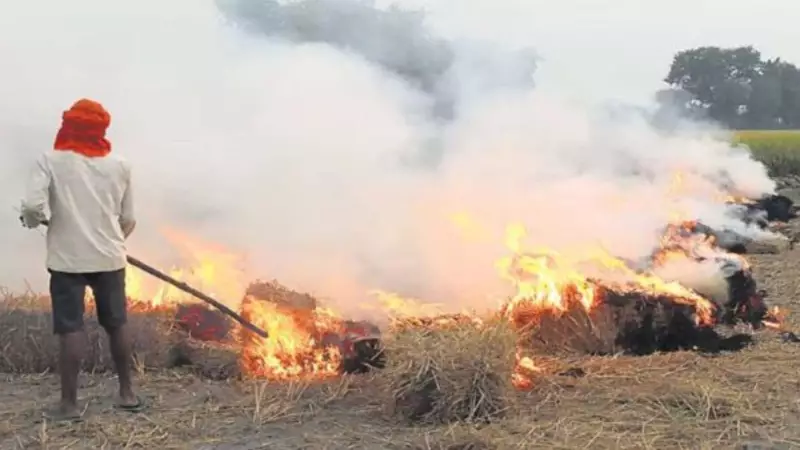
In a development that highlights the ongoing tension between agricultural traditions and environmental concerns, authorities in Haryana's Palwal district have taken stringent action against a local farmer for engaging in stubble burning during the Diwali festival period.
The Controversial Case
The Palwal police department registered a First Information Report (FIR) against the farmer, marking a significant escalation in the state's efforts to combat air pollution caused by crop residue burning. This enforcement action comes at a particularly sensitive time when the region is already grappling with deteriorating air quality during the festive season.
Timing Raises Questions
The timing of this FIR has sparked considerable debate among agricultural communities and environmental activists alike. With Diwali celebrations underway, many are questioning whether the enforcement action could have been handled differently, given the cultural significance of the festival and the economic pressures facing farmers.
The Larger Environmental Context
This case emerges against the backdrop of worsening air quality in northern India, where stubble burning has been identified as a major contributor to seasonal pollution spikes. The practice, though banned, remains widespread among farmers who cite the lack of affordable alternatives for managing crop residue.
Farmer's Perspective
Agricultural communities have long argued that they face an impossible choice between complying with environmental regulations and managing their fields within tight seasonal windows. The high cost of alternative methods for crop residue management often leaves farmers with limited options, forcing many to resort to burning despite the legal consequences.
Enforcement Challenges
The Palwal case underscores the challenges authorities face in balancing environmental protection with the practical realities of agricultural livelihoods. While the government has promoted various schemes and machinery to help farmers manage crop residue without burning, implementation and accessibility remain significant hurdles.
Broader Implications
This FIR is likely to reignite discussions about sustainable agricultural practices and the need for comprehensive solutions that address both environmental concerns and farmers' economic viability. As the winter season approaches, with its characteristic smog and pollution, the debate over stubble burning is expected to intensify further.
The case serves as a stark reminder of the complex interplay between traditional farming methods, environmental regulations, and the search for sustainable solutions that work for all stakeholders involved.






